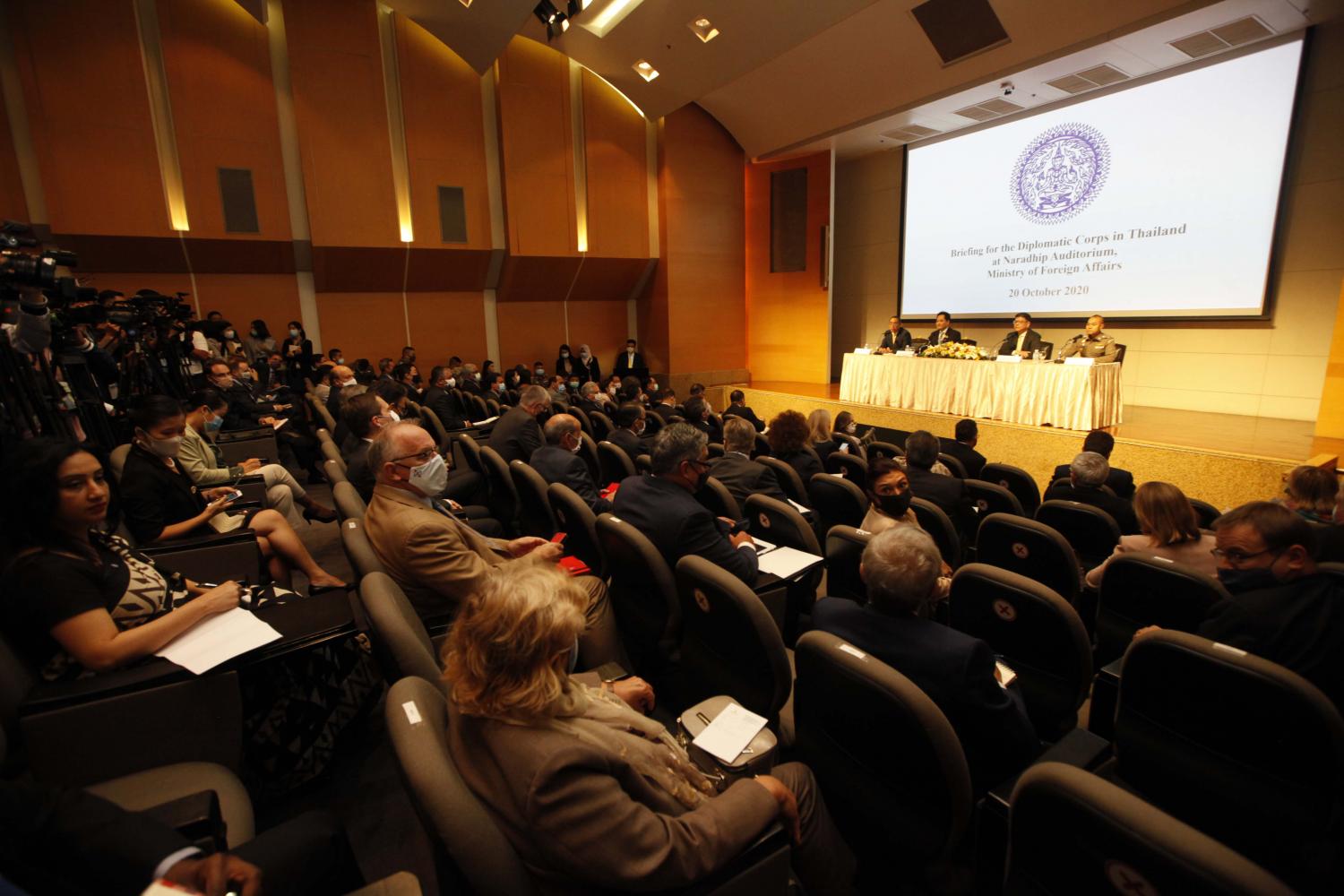Foreign diplomats are allowed to observe the political protests but they must inform the Ministry of Foreign Affairs (MFA) in advance, spokesman Tanee Sangrat said on Tuesday.
“They [diplomats] can go [and observe the protests] but they should inform the Ministry of Foreign Affairs,” he said. “Some embassies and international organisations have told us beforehand, some have not.”
He emphasised that they could “observe, not take part [in the rallies]”.
So far, the High Commissioner for Human Rights (UN Human Rights) and the Canadian embassy have informed the MFA of their intention to send observers, according to the MFA.
The MFA has not warned embassies against sending staff to the rallies — it had merely sent them letters informing them about the protests for the sake of their safety, Mr Tanee said.
He was speaking after updating the media on the political situation and recent protests.
Thani Thongphakdi, the MFA permanent-secretary, government spokesman Anucha Burapachaisri and police deputy spokesman Kissana Phathanacharoen jointly briefed the diplomatic corps and international organisations’ representatives on the current political situation and mass protests as well as the rationale behind last week’s declaration of a severe state of emergency in Bangkok.
Mr Tanee, Director-General of the Department of Information and MFA spokesperson, was the moderator of the briefing.
More than 84 members of the diplomatic corps and international organisations attended the briefing, among them 37 ambassadors, including those from the EU, Germany, India and Russia.
The briefing aimed to provide clarity about the protests, the necessity to introduce certain measures and how the government planned to respond to the protesters’ demands.
Mr Thani confirmed that the people’s fundamental rights to freedom of expression and freedom of assembly were guaranteed in accordance with Thai law.
The government also supported parliament’s right to explore ways of resolving the situation, including through an amendment of the constitution, Mr Tanee said.
He said the government’s next step would involve plans to ease the current tension by considering opinions and requests from all sides. It also hoped to foster mutual understanding between different generations.
Mr Tanee explained that the state of emergency had been necessary to preserve public order and safety according to international standards, claiming that all police officers were carrying out their duties with restraint and careful discretion.
He said diplomats had asked about the likelihood of a special early parliamentary session, the role of the media at this extraordinary time and Thailand’s obligations according to human rights and international laws.
The protesters’ demand for the monarchy to be reformed had not been discussed in the briefing, he said, nor had any diplomat asked about it, but he believed all demands would be discussed when parliament reconvenes.
This article is taken from Bangkok Post

